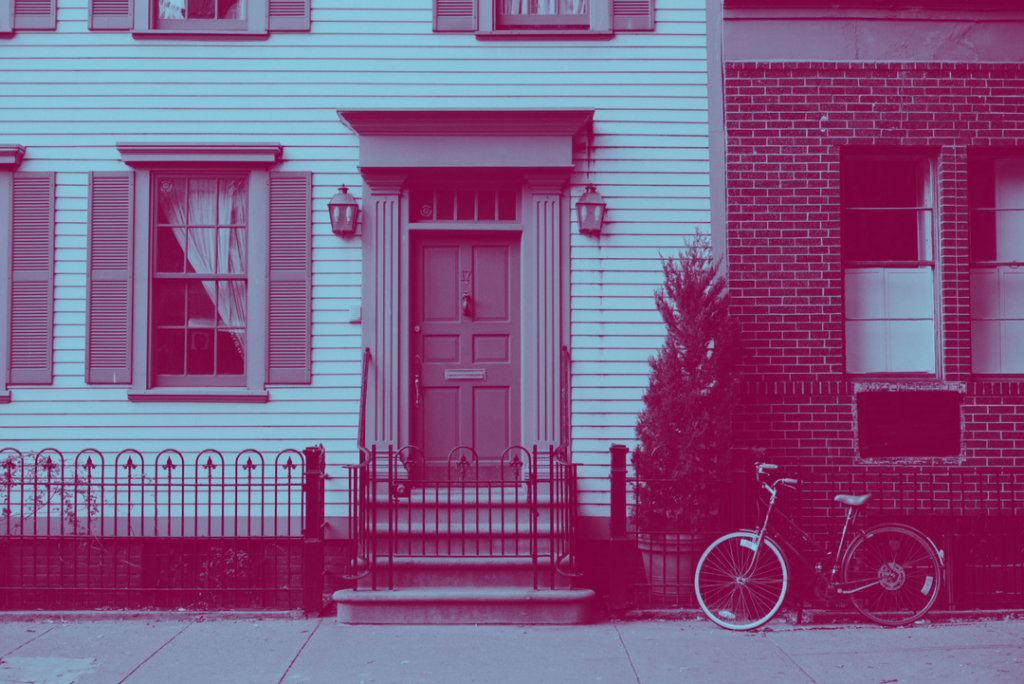House Maintenance
State of Repair When You Begin Renting
Discuss the condition of the unit before you agree to lease. If the landlord promises to replace, clean, fix or paint anything, put it in the lease before you sign it (no matter how trivial it may seem), including a due date for completion. Each of you should initial beside those updates, before signing.
It is the landlord’s responsibility to remove any garbage and remaining items left by the previous tenant. When moving in it is always a good idea to inspect the premises with the landlord present and record the condition of the premises including the walls, flooring, and screens in the windows. You do not want to be held responsible for any pre-existing damages to the premises. Taking photos is always a good idea.


The Condition of the Premises While You Live There
As a tenant, you are responsible for the “ordinary cleanliness” of your premises. As well, you are responsible for any damage to the premises caused either deliberately or negligently by you, other occupants of your apartment, or any guests. Undue damage to the rented premises may be grounds for eviction. You may have further obligations or restrictions contained in your lease. For example, the lease may provide that you can only repaint the apartment using a white or off-white colour.
Furthermore, you need to clarify upfront with the landlord, whose responsibility it will be for snow shovelling and grass cutting since there are city by-laws governing these situations and you could be fined if these chores are not completed.
Repairs
A landlord is responsible for maintaining your premises in a good state of repair and fit for habitation, and for complying with all health, safety, housing and maintenance standards. If an issue arises, the first step is to talk to your landlord about your maintenance problems. Follow this up with a letter and be sure to keep a copy for your records. If the landlord does not respond in a reasonable period of time, contact the City of Hamilton Property Standards Office and request an inspection. If an inspector finds that the repairs are necessary, a work order may be issued, listing the repairs that must be completed by a specified date. In addition, a tenant may apply for an abatement in rent or the Landlord and Tenant Board may order the landlord to carry out the repairs.
Unless it is a true emergency, it is best to apply to the Landlord and Tenant Board for an order authorizing the repair. Withholding rent or deducting the costs of the repairs (without court authorization) may result in the landlord applying for a notice of termination for non-payment of rent.
If things breaking is an ongoing problem (“one thing after another”), you can apply to the Landlord and Tenant Board for an order to terminate your lease for lack of repairs. The Landlord and Tenant Board will need proof that you notified the landlord and gave him or her a reasonable time to remedy the situation, however. Unless the circumstances are extreme, the Landlord and Tenant Board will be reluctant to grant an early termination. It would be best to seek legal advice in these circumstances.
NOTE: It is very important to maintain good record-keeping when living in your own place. Keep written records of utilities, cancelled rent cheques (individually or as a group), a log of repairs (including the number of calls – with dates – to the landlord), as well as the name, address and telephone number of the landlord or property manager.


Vital Services
It is illegal for a landlord to disrupt the reasonable supply of vital services to a tenant such as heat, hydro, natural gas or hot/cold water. In Hamilton, property owners and landlords of residential rental units are required to supply adequate and suitable heat from September 15 to May 15 of each year. Temperatures must be at least 20 C (68F) in all spaces where people live. The heat must be supplied by a safe, operable and permanent heating appliance capable of maintaining these temperatures.
After advising the landlord of this by-law, if the premises are still cold, contact the Hamilton Property Standards Office and request that an inspector visit the property.
State of Repair When You Leave
First, look at the terms of your lease. Usually, you are not responsible for “ordinary wear and tear”. So if the damage is minor (e .g . nail holes for pictures) you are probably not responsible. If you have made “improvements” (e .g . painting and wallpapering) without the consent of the landlord, or if your lease prohibits this activity, the landlord is within his rights to insist that you remove or correct the “improvements” and restore the premises to their original condition.
- You should do a general cleaning before leaving.
- You should remove and dispose of items appropriately or you could be charged by your landlord
Bed Bugs
Consult with Public Health or a professional pest control operator to confirm that you have a bed bug problem. Once a bed bug infestation had been confirmed, try to work together with your landlord and/or property manager to solve the problem.
The best method to deal with bed bugs is Integrated Pest Management (IPM), which combines a variety of techniques and products that pose the least risk to human health and the environment. After careful assessment, professional pest control services may be called in to apply a pesticide spray.
You may be required by the landlord, property manager or the pest control operators to do the following:
- Vacuum with a nozzle attachment to capture the bed bugs and their eggs. Vacuum all crevices on your mattress, bed frame, baseboards and any objects close to the bed. It is essential to vacuum daily and empty the vacuum immediately.
- Wash all your linens in the hottest water possible and place them in a hot dryer for 20 minutes. Consider covering your pillows and mattress with a sealed plastic cover or approved bed bug-resistant mattress cover.
- Remove all unnecessary clutter.
- Prepare for the pesticide spray by removing everything from dressers, drawers, closets, shelves, cupboards and countertops. Provide access to all baseboards, keep the floor clear, and move all the furniture 2 feet from the wall.
- Prevent future bed bug problems by sealing cracks and crevices between baseboards, on wood bed frames, floors and walls with caulking. Repair or remove peeling wallpaper, tighten loose light switch covers, and seal any openings where pipes, wires or other utilities come into your home (pay special attention to walls that are shared between apartments).
- Monitor daily by setting out glue boards or sticky tape (carpet tape works well) to catch the bed bugs.
- Examine closely any items that you are bringing into your home. Furniture put out by someone else for garbage pick-up could be infested with bed bugs. Use caution. Also, new or used clothing should be put through the dryer for at least 20 minutes before unpacking.
It is normal to see some living bed bugs for up to ten days after treating your home through IPM and/or pesticides. If you continue to see a large number of bed bugs after two weeks, contact a professional pest control service.
Bed Bugs: Rights and Responsibilities Q & A
Who is responsible when a bed bug infestation is discovered in an apartment?
- If a tenant has a problem with bed bugs or other insects or pests, they should immediately inform the landlord, superintendent or property manager, who is responsible for ensuring homes are pest-free. Tenants are responsible for cooperating with the landlord’s efforts to control bed bugs.
When can the landlord enter to inspect an apartment?
- Landlords have the right to enter to inspect and maintain rental units. Tenants must be given notice in writing 24 hours ahead of time. Landlords can only enter the units between 8:00 a.m. and 8:00 p.m. Tenants can let landlords and pest control operators into their unit at other times, or without advance notice, but they do not have to, except in an emergency. Treating an apartment for bed bugs is not considered an emergency, so tenants should be given proper notice and adequate time to properly prepare the unit before the application of pesticide.
Can a landlord evict a tenant for reporting bed bugs?
- A landlord cannot evict a tenant for reporting an infestation of bed bugs. Landlords can only evict tenants after getting an order from the Landlord and Tenant Board, and only for the reasons stated in the Residential Tenancies Act.
What is the least expensive and fastest solution to controlling bed bugs?
- Early detection is important to address an infestation. There is no fast, inexpensive solution and only licensed pest control operators should be used. If the job is not done properly, the bed bugs will come back or continue to spread. The problem will then become more serious and expensive.
What if other units have bed bugs? Do all tenants have to co-operate?
- If the pest control operator believes there is a need to also treat neighbouring units, the landlord may have the right to enter to inspect and treat the neighbouring apartments as well as the affected apartment.
What if a tenant cannot or will not properly prepare their apartment for treatment of the bugs?
- Proper preparation is key to successful treatment and prevention of bed bugs. Landlords should inform tenants on what they should do to make treatment effective. This can take a lot of work for tenants, including clearing out shelves, laundering all clothing and bedding, moving furniture away from walls and removing clutter. Many tenants will require help from friends, families or social service agencies.
Who pays for pest control costs?
- Landlords are responsible for the costs of treatment. Landlords can apply to the Landlord and Tenant Board for an order to charge a tenant (extra money above rent or key deposit) if a tenant causes them needless expense, such as missing an appointment to let a pest control operator into the unit. The tenant will have a chance to explain, and the Board will decide.
What if a landlord fails to take action?
- If a landlord refuses to help when a tenant notifies them of a bed bug problem, tenants may obtain assistance or advice from a legal clinic, the Landlord and Tenant Board or from Public Health.
What can the Landlord and Tenant Board do for landlords or tenants?
- The Landlord and Tenant Board will accept applications from either tenants or landlords. After holding a hearing, the Board can issue an order against either the landlord or tenant. If the Board determines that one person has not fulfilled their legal duty, it may issue an order such as paying less rent or demanding one person to pay money to another. The Board also has a mediation process, which may help landlords and tenants to find solutions to the problem of bed bugs.
Off-Campus Safety
Hamilton, especially around campus, is relatively safe. Nonetheless, even in the safest neighbourhoods, every year there are reports of break-ins, peeping toms, and sexual assault. Having a neighbourhood full of students has its benefits, but it can also attract certain kinds of crime. There are also safety issues related to your house – things like fire and security.
Safety cannot be overlooked when searching for accommodation! Make sure that you check out your potential yard and street lighting, distance from transportation or campus, and shrubs around the entrances and on the street. Do you feel comfortable here? Do you feel good about your landlord?

Expandable List
To protect your house from a break-in, make sure that there are working locks on all the doors and windows and always lock the house when you leave. If you’re going home for the winter break or away for Reading Week (thieves know the school calendar) you may want to invest in a timer for the lights inside of your house. Don’t forget to store your electronic equipment (like computers, stereos, TVs), jewellery and other small valuables in a safe location. Ask a friendly neighbour to keep an eye on the house for you. Tell them about your plans for the holiday and when you’ll be back. If they have a second car, consider asking them to park it in your driveway to make your house look lived in. You might also want to leave a key with a trusted neighbour and ask them to check in on the house daily – maybe even turn lights on and off, etc.
Your landlord is required by law to ensure that the house is safe and that there is a working smoke detector on each floor, as well as a working carbon monoxide alarm and fire extinguisher. If you have serious concerns about the fire safety of your accommodation, please call the City of Hamilton Fire Department, Prevention Division at 905-546-3333.
If you’ve noticed evidence of pests or vermin (e.g. mouse droppings) in your accommodation, call your landlord first. If your landlord is not able or willing to call an exterminator or solve the problem in some other way, then call the City of Hamilton Health Department at 905-546-2489. They can be reached for health concerns including pests, lack of heat, mold, etc. They will come and inspect the house for you, free of charge. If there is a problem, they will deal with the landlord.
If you’re on campus studying late, the safest way to walk home is with a friend. However, if you’re alone on campus and need to walk home, call SWHAT (Student Walk Home Attendant Team) at ext. 27500, or download the MUSST app. Open 7 days a week, 7 p.m. to 1 a .m ., September to April, SWHAT offers you a free accompanied walk with one male and one female volunteer across campus or to off-campus destinations (maximum 30 min walk or bus ride from campus).
Other Issues Covered Under the RTA
Your Right to Privacy
The RTA has several rules to protect the privacy of tenants. A landlord can enter a rental unit only in the following circumstances:
- A landlord can enter a unit without written notice if there is an emergency or if the tenant consents to the entry at the time of entry
- After either a landlord or a tenant has given a notice of termination, the landlord may (after notifying or attempting to notify the tenant in advance) enter a unit without written notice between 8 a.m. and 8 p.m. to show the premises to potential tenants
- A landlord may enter a unit, after providing 24hrs written notice and between the hours of 8 a.m. and 8 p.m. To do one of the following:
-
- make repairs or do work in the unit
- allow cleaning staff to clean the common areas, if stated in the lease
- allow a potential mortgagee, insurer, or purchaser to inspect the premises
- for any other good reason as set out in the lease


Number of Housemates
If you would like to add another housemate to the bunch, the RTA does not prohibit a tenant from taking any additional housemates, so long as the number of persons continuously occupying the premises does not violate housing, safety, or health standards or any other by-law. (Check with the City of Hamilton by-law office for more information). In other words, your landlord cannot charge you an extra $75 a month for your friend to live there. If the new housemate regularly pays rent directly to the landlord, an implied tenancy may be created. Otherwise, the new housemate may have no relationship with the landlord and may be dependent solely on their agreement, often verbal, with the existing tenants (thus constituting a sub-tenancy). In no event can the landlord increase the rental payments during the term of the lease based upon the number of occupants.
The Party Problem
If your housemates have wild parties and have already been warned by the landlord that they will take steps to evict you if it happens again, the landlord may give notice of termination of tenancy. This can be done if the conduct of a tenant, another occupant of the rental unit, or a person permitted into the residence is such that it “substantially interferes” with the reasonable enjoyment of the residential premises by the landlord or another tenant.
Furthermore, the landlord may be able to take legal action if the excessive noise is bothering the neighbours, which could violate noise by-laws.
Locks
A landlord can change the locks only if they supply a key to the tenant. A tenant cannot change the locks without the landlord’s consent. A landlord is not required to put a lock on each bedroom door. You are best to inquire with the Hamilton Property Standards Office for details.
Guests
A landlord cannot interfere with a tenant’s reasonable enjoyment of a rental unit for all usual purposes. As well, a landlord cannot harass, obstruct, coerce, threaten or interfere with a tenant.
Pets
The RTA provides that a provision in a lease prohibiting pets is of no effect. However, it may still be a problem if your pet is substantially interfering with the reasonable enjoyment of the premises or is a dangerous breed. You may also run into trouble if the landlord or another tenant has serious allergies and is being affected by your pet. As well, local by-laws may prohibit certain species or limit the number of pets permitted. A landlord may evict a tenant with a pet under certain circumstances.
Landlord Rights
The RTA provides that tenants will not “harass, obstruct, coerce, threaten or interfere” with the landlord. Conduct that substantially interferes with the reasonable enjoyment of the premises by the landlord or other tenants, or which impairs the safety or other rights of other tenants may be grounds for eviction under the RTA. As well, the RTA contains a list of offences committed by the tenant, that may be reported to The Investigation Unit of the Ministry of Municipal Affairs and Housing. These offences include changing the locks without the landlord’s consent and interfering with a landlord in the exercising of his/her rights under the RTA.

